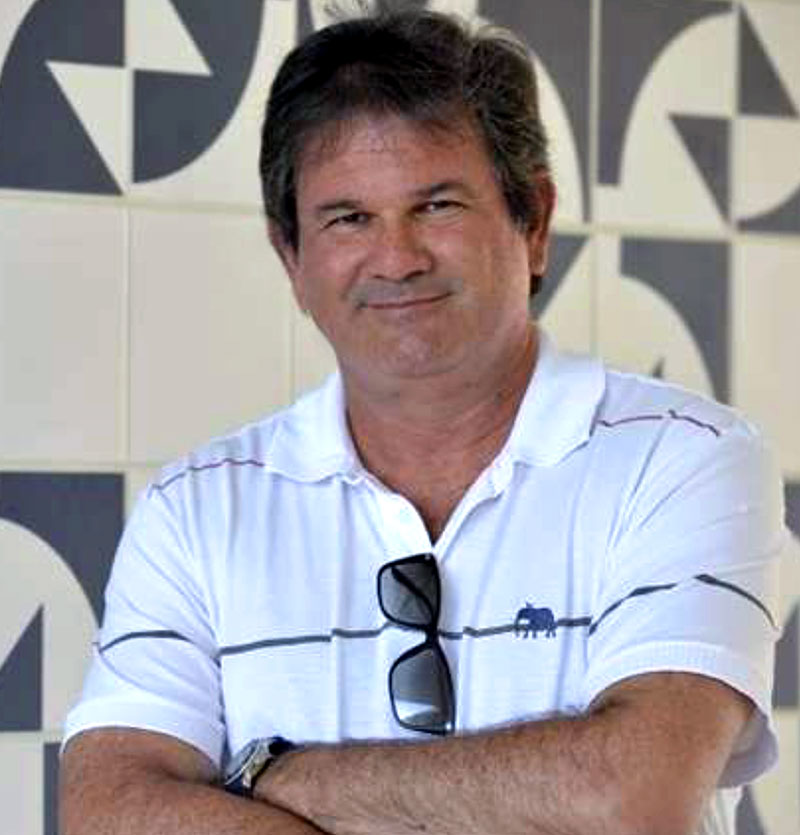
Secom UnBBoianovsky at UnB, photo undatedSecom UnB
In the grand lecture he gave in December 2020 at a meeting of the Brazilian National Association of Graduate Programs in Economics (ANPEC), Mauro Boianovsky alluded to the fact that he saw economics as a transnational science which, like so many others, transgresses frontiers. The economist, who passed away in Brasília on February 21, applied this notion to the letter during his academic life. “He was ‘in his element’ in the international arena, both participating in significant associations and publishing the best journals in our field,” says Mauricio Chalfin Coutinho, of the University of Campinas (UNICAMP) Institute of Economics.
Boianovsky became globally known in the history of economic thinking, a subarea of economics dealing with the conception of theories and their origins, looking into aspects such as the lives of authors, their interlocutors and influences, and in what ways their proposals had impact. Between 2016 and 2017, he presided over the History of Economics Society (HES), the world’s oldest association in the field, and was the first Latin American to hold the post.
Born in the southern Brazilian city of Porto Alegre on April 12, 1959, Boianovsky graduated in economics at the University of Brasília (UnB) in 1979. He began lecturing at Fluminense Federal University (UFF) in 1984, and at the same time began his master’s at the Pontifical Catholic University of Rio de Janeiro (PUC-RJ), concluding in 1989. He undertook his doctorate at the UK’s University of Cambridge between 1990 and 1996. As a faculty member, Boianovsky transferred to UnB in 1996, where he became a standing professor in 2005.
His master’s and doctoral research focused on the work of Swedish economist Knut Wicksell (1851–1926), a pioneer in monetary theory dealing with prices, interest rates, and economic cycles. From then on Boianovsky approached a number of authors with a penchant for the history of macroeconomics and economic development. “At the turn of the century, when Brazil was practically only thinking about the classics and discussing the ideas of Adam Smith [1723–1790] for the millionth time, Mauro was one of the researchers who drew attention to the history of the contemporaneous economic output of authors such as American Robert Lucas [1937–2023]. He also came to discuss the constitution of growth theories. “This had an enormous impact on our field,” says economist Ramón Garcia Fernández, of the Federal University of ABC (UFABC).
In the last 15 years, Boianovsky dived deep into Latin American names in the field, most notably Brazilian economist Celso Furtado (1920–2004).
Boianovsky’s body of academic work encompasses books such as Transforming modern macroeconomics – Exploring disequilibrium microfoundations, 1956–2003 (Cambridge University Press, 2013), which he wrote with British economist Roger Backhouse, of the University of Birmingham, UK. In 2014, the title was selected as Best work of the year by the European Society for the History of Economic Thought (ESHET).
The economist published more than 80 articles, most of which in overseas scientific journals, and three of them won ANPEC’S Haralambos Simeonides award in 1996, 1998, and 2011. “His early-career work is difficult to read due to his very technical style, but his language got milder in the later years, increasing his readership,” says Ana Maria Bianchi, retired professor at the School of Economics, Business and Accounting of the University of São Paulo (FEA-USP).
Despite his constant back-and-forth between academic events, Boianovsky was no fan of airplanes—he lost his father, physician David Boianovsky, in an air accident in São Paulo in 1996. The economist passed aged 64, after suffering from liver cancer. He leaves his companion Ana Cristina, children Daniel and Ilana, and granddaughter Isabela.
Republish